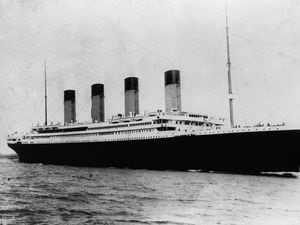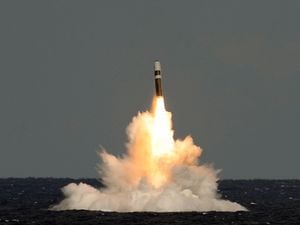Peter Rhodes on a useful tunnel, Russian traitors and the pure joy of community 'punishments'
Punishment or retirement?

MY piece on Boris's proposed bridge from Ireland to Britain inspired many comments from readers. Strangely, no-one mentioned an idea from the 1980s to solve the UK's unemployment and defence problems: the Falklands Tunnel.
IF you are of a certain age, you may recall community punishments being introduced as an alternative to prison sentences. We were sternly assured by everyone from ministers to magistrates that these punishments were "Not A Soft Option." So why was it, we hacks wondered, that so many defendants punched the air with joy when they got one? Whatever the authorities said, Chummie in the dock certainly preferred community punishment to clink. So how goes the system today?
AT a recent court hearing in Grimsby, a mother pleaded with the judge to lock up her 14-year-old son to protect him and the public. The lad has served several community punishments. His mother said: "Most of the time they go to the centre, play snooker and have a laugh. There are even Fridays where they go out for the day fishing." So can anyone explain the difference between community punishment and retirement?
TALKING of which, I wonder how many ageing Russians heard their president denouncing the Novichok survivor Sergei Skripal as "a traitor to the Motherland" and thought: "Well, Comrade Putin, it takes one to know one." What sort of traitor promises his people a pension at 60 and then raises the qualifying age to 65 - especially in a country like Russia where, thanks to a diet of stodge and vodka, male life expectancy is 67? Ordinary Russians realise that Putin's superpower pretensions and cyber-wars are being paid for by confiscating their pensions. So perhaps Skripal isn't such a villain. In fact, maybe the most patriotic thing a Russian can do today is to fight for the downfall of Putin.
MY recent piece on Bosworth Battlefield brought back memories for a reader who spent years travelling from the Midlands to Kent, passing the battlefield. He recalls"something sinister or melancholy about the area." He knew several lorry drivers who were always glad to get past the field. He wonders whether the battlefields of the First and Second World Wars have the same gloomy atmosphere. Having visited many of them, I can only recall one that seemed steeped in misery, and it was probably just the weather and the company. On a pitch-black, freezing autumn evening in the 1990s I had the privilege of walking with a group of Arnhem veterans along the path of their retreat from Oosterbeek to the River Rhine. Fifty years on, you could still sense the desolation and despair.
A HEADLINE after the Tory conference described someone who "rails" against a minister. Rail, like so many words in headlines, is one of those verbs you never hear in real life. It has always been a mystery to me that headline writers who talk perfectly normally away from the office, once behind a computer start writing about probing, phew-what-a-scorchers, 11th hour sanction-busting bids and railing. Aged hack in rail rail.





